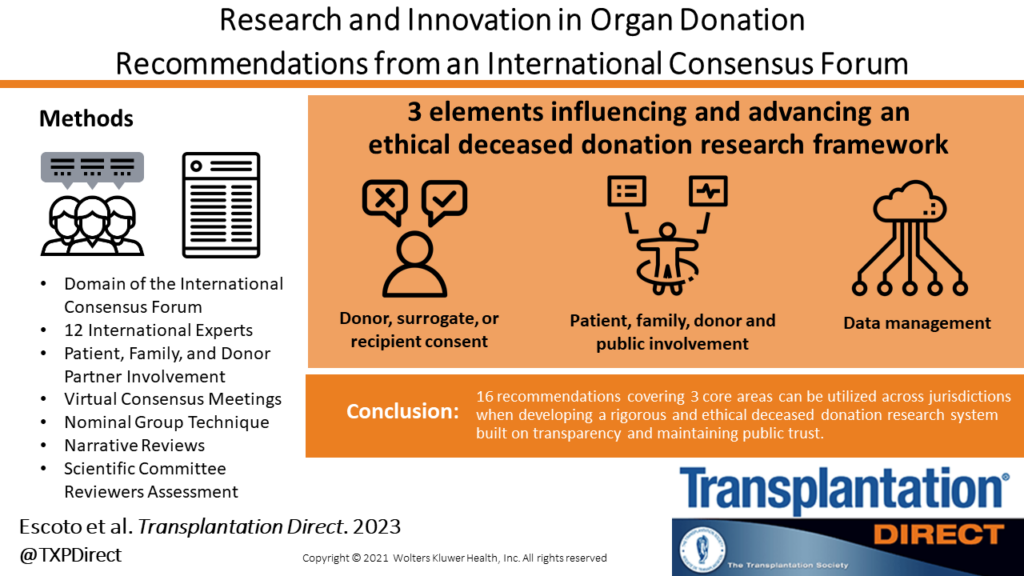
Revolutionizing Healthcare: Exploring Innovations in Organ Transplantation
The field of organ transplantation has undergone remarkable advancements, with innovations that are transforming the landscape of healthcare. These groundbreaking developments not only increase the success rates of organ transplants but also open new possibilities for patients in need.
Precision Matching for Optimal Outcomes:
Organ transplantation innovations include precision matching techniques that enhance compatibility between donors and recipients. Advanced genetic and immunological assessments enable more accurate matching, reducing the risk of rejection and improving the overall success of organ transplants.
Preservation Breakthroughs:
The preservation of organs is a critical factor in transplantation success. Innovations in organ preservation techniques, such as machine perfusion and cryopreservation, extend the viability of donor organs. These breakthroughs offer more flexibility in organ transportation and increase the pool of available organs for transplantation.
3D Printing in Organ Transplants:
3D printing technology has made significant strides in the field of organ transplantation. Researchers are exploring the possibility of creating artificial organs using a patient’s cells, offering a potential solution to the shortage of donor organs. This innovative approach has the potential to revolutionize organ transplantation by providing personalized and readily available organs.
Immunosuppressive Drug Advancements:
To prevent the body from rejecting a transplanted organ, patients typically take immunosuppressive drugs. Ongoing research has led to the development of more targeted and effective immunosuppressive medications, reducing the risk of complications and improving the long-term success of organ transplants.
Gene Editing for Transplant Compatibility:
The advent of gene editing technologies, such as CRISPR-Cas9, has opened new possibilities for enhancing transplant compatibility. Researchers are exploring ways to modify the genes of donor organs to make them more compatible with the recipient’s immune system, potentially reducing the need for lifelong immunosuppressive therapy.
Artificial Intelligence in Organ Allocation:
Organ allocation is a complex process, and artificial intelligence (AI) is playing a crucial role in optimizing this system. AI algorithms analyze vast amounts of data to match organs with recipients based on various factors, including medical history, geography, and organ compatibility. This ensures a more efficient and equitable distribution of organs.
Expanded Criteria Donors and Xenotransplantation:
Innovations in organ transplantation extend to the consideration of expanded criteria donors and xenotransplantation. Expanded criteria donors may include organs from older individuals or those with specific medical conditions. Xenotransplantation explores the use of organs from animals, opening up new possibilities for overcoming the shortage of human donor organs.
Telemedicine in Post-Transplant Care:
Post-transplant care is a critical phase in organ transplantation. Telemedicine innovations enable healthcare providers to monitor and support transplant recipients remotely. This approach enhances patient convenience, allows for timely intervention, and contributes to better long-term outcomes.
Patient-Centric Care and Ethical Considerations:
As organ transplantation evolves, a greater emphasis is placed on patient-centric care and ethical considerations. Innovations in communication and shared decision-making ensure that patients are active participants in their transplant journey. Ethical considerations guide the responsible development and implementation of emerging technologies in organ transplantation.
Future Prospects and Collaborative Research:
The future of organ transplantation holds exciting prospects with ongoing collaborative research. Scientists, clinicians, and technologists continue to work together to refine existing innovations and explore new avenues for improving the success and accessibility of organ transplants.
In the dynamic landscape of organ transplantation, innovations are shaping a future where more lives can be saved, and patients can experience improved quality of life post-transplant.
For more information on organ transplantation innovations, visit CentrumZdravi.org.
